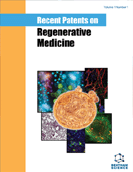Abstract
Lynch syndrome (LS), or hereditary nonpolyposis colorectal cancer (HNPCC), represents 2% - 4% of all cases of colorectal cancer. LS is an autosomal-dominant inherited cancer predisposition syndrome caused by germline mutations in deoxyribonucleic acid (DNA) mismatch repair genes. Since the discovery of the major human genes with DNA mismatch repair function, mutations in five of them have been correlated with susceptibility to LS: mutS homolog 2 (MSH2); mutL homolog 1 (MLH1); mutS homolog 6 (MSH6); postmeiotic segregation increased 2 (PMS2); and postmeiotic segregation increased 1 (PMS1). The diagnostic features of LS have accumulated and been refined over time. Today, LS is defined by a set of clinical, pathological, and molecular features that encompass: a family history of colorectal cancer, a particular spectrum of extracolonic neoplasms, multiple colorectal tumors, early onset of cancer, particular histological features among colorectal cancers, presence of DNA microsatellite instability, loss of expression of DNA mismatch repair proteins, and germline mutation in a DNA mismatch repair gene. This review provides an overview of the diagnosis and management of LS patients, including some recently reported patents.
Keywords: Hereditary nonpolyposis, colorectal cancer, Lynch syndrome, mismatch repair genes, mutation, DNA repair, cancer, patents, familial adenomatous polyposis, extracolonic tumors, microsatellite instability (MSI), endometrial cancer, multiple keratoacanthomas (Muir-Torre syndrome), colonoscopy, immunohistochemical evaluations, immunohistochemistry, germline mutations, Autosomal dominant inheritance, synchronous, metachronous, adenoma-carcinoma sequence, dysplasia, ohn's-like lymphoid reaction, lymphangioinvasive growth, tumor-infiltrating lymphocytes, carcinoid tumors, CHEMOTHERAPY, fluorouracil-modified DNA, disease-free survival (DFS), Irinotecan, alkaloid camptothecin, Oxaliplatin, bevacizumab, vascular endothelial growth factor (VEGF), anti-angiogenic therapy, antigen-binding fragment, non-steroidal anti-inflammatory drug, proton pump inhibitor, mismatch repair (MMR), epimutations, hemimethylation, MicroRNAs, mRNA cleavage, in situ hybridization, restriction enzymes, constant denaturing capillary electrophoresis (CDCE), Urinary tract cancer (UTC), cytotoxic effects
 12
12







